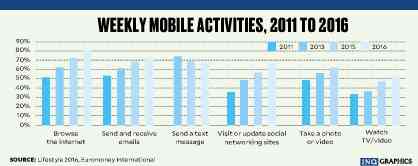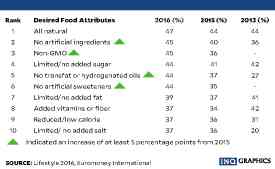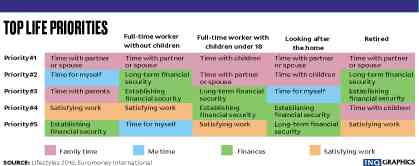Consumers becoming healthier, greener, more family-oriented
The behavior of consumers around the world is a-changing.
These are some of the global lifestyle trends discussed in a recent study by global market research company Euromonitor International: people are becoming more selective of what they eat; there is greater awareness and concern about climate change; and consumers are willing to pay more for services that will allow them to spend more time with their families.
The annual study’s data were gathered through the Global Consumer Trends 2016 survey and compiled in the report Lifestyles 2016.
Over 100,000 respondents in 20 countries across all regions were surveyed by the international research company.
The study showed that when buying food or beverage, over 1/3 of the respondents said that they make it a point to read labels and ingredients before making a purchase.
Their favorite label: “all-natural.”
“Concerns about unnatural additives, genetically modified ingredients, and fats and oils jumped from 2015 to 2016, as did the number of consumers who avoid a long list of food attributes or ingredients,” the report reads.
There is, however, a paradox. While the number of consumers who trust food and beverage products labeled “natural” increased in the past five years, more people are now unsure about what exactly the term means and think that the label is something companies use to charge higher prices. According to the report, “beliefs that the term is well-regulated have plummeted since 2011… [which] echoes the fact that ‘natural’ is indeed an unregulated label in many markets.
Despite this, many still put their faith in “all-natural” food labels, presumably because consumers have also become more discerning.
Just as consumers are going green with their food, many have also become more conscious of environmental issues, particularly climate change, especially in Latin America and Southeast Asia, the report states.
However, most people’s concern for their environmental impact is highly influenced by two factors: their spending power, and whether the product will directly benefit them and their families.
On the survey’s list of Top 10 Green Product Combinations bought by shoppers, the top six are all food of varying environmental labels: all-natural and fresh; packaged without artificial flavors or sweeteners; hormone-free; non-GMO; organic.
It is only by the seventh item that consumers identified a category which directly helps the environment, not the consumer: eco-conscious home care products.
This implies, says the report, the need for brands to highlight their eco-friendly products’ “good-for-me” features rather than their “bigger picture benefits” to attract more consumers.
Shifting its focus to the technological aspect of consumers’ daily lives, the survey found that most people now lead a “mobile-first” lifestyle, especially with global smartphone ownership rates rising from 20 percent in 2011 to 58 percent this year. Also, more people are doing at least five separate activities with their smartphones every day, such as browsing the web, checking emails, visiting social media accounts, or watching a video.
“The ever-growing presence of smartphones in the lives of consumers means new opportunities for brands to better reach their target market and develop marketing strategies, products, and services suited for the mobile customer,” the report reads.
Based on survey results, the mobile-first lifestyle seems correlated to consumers’ desire to spend more time with family, be it their spouse, partner, or children. Technology has made it more convenient, for, say, full-time workers to shop online for groceries, allowing them to stay at home with their kids. Back in 2011, the survey found that 54 percent of respondents had never used their mobiles to buy online; that number has now dropped to 27 percent.
The survey also found that at least 1/3 of the respondents use the internet at least once a month for food delivery.
Just as they would for “natural” products, people are now willing to pay extra for technological services that would allow them to buy more time for what they deem more important activities.
“Innovative brands offer consumers the best of everything by enabling them to free up time to more satisfying things in their lives. Successful companies will be those that can distinguish activities that consumers enjoy from those that are viewed as burdensome, mundane,” the report says.

















